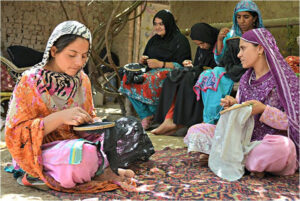Low-impact tourism design and coordination
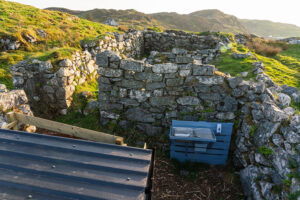 We’re putting our money where our mouth is and participating in an emerging network of tiny, low-impact camping facilities to support community tourism in Pairc, South Lochs, Isle of Lewis. By encouraging guests to stay longer and buy from small local businesses, and supporting local bus services and/or arrive by cycle or on foot, we’re growing the South Lochs economy while reducing any negative impacts to virtually zero.
We’re putting our money where our mouth is and participating in an emerging network of tiny, low-impact camping facilities to support community tourism in Pairc, South Lochs, Isle of Lewis. By encouraging guests to stay longer and buy from small local businesses, and supporting local bus services and/or arrive by cycle or on foot, we’re growing the South Lochs economy while reducing any negative impacts to virtually zero.
Tom an Fhuadain pop-up campsite webpage
Technical backstopping, programme strategy and design — NIRAS Sida Market Systems Development Helpdesk
We are working with Agora Global to provide on-demand, tailored technical support in Market Systems Development to Sida country programme managers across its global missions. Our support varies from appraisal of proposals submitted by Sida’s development parters to portfolio review and strategydevelopment.
Sida Market Systems Development Toolbox.
Conceptualisation and realisation — creating the Norfolk ‘Forest to Sea F2C’ long-distance cycling tourism and leisure route.
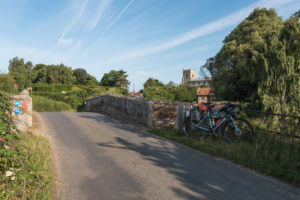 This pro bono project conceptualises the Norfolk ‘Forest to Sea’ F2C cycle tourism route as a contribution to low-carbon rural development in, despite its sometimes better-off veneer, one of Britain’s most disadvantaged, low-income regions. While moving slowly through the county’s natural and cultural landscapes, visitors will use local products and services offered by small, independent enterprises. The ‘Slow Travel’ and low-impact tourism ethos informs the accompanying e-guide book, which highlights local, seasonal food and drink, natural and cultural heritage and public transport links.
This pro bono project conceptualises the Norfolk ‘Forest to Sea’ F2C cycle tourism route as a contribution to low-carbon rural development in, despite its sometimes better-off veneer, one of Britain’s most disadvantaged, low-income regions. While moving slowly through the county’s natural and cultural landscapes, visitors will use local products and services offered by small, independent enterprises. The ‘Slow Travel’ and low-impact tourism ethos informs the accompanying e-guide book, which highlights local, seasonal food and drink, natural and cultural heritage and public transport links.
The F2C homepage presents interactive mapping, links to three photo blogs on the route’s stages, a short video and the visitor guide.
This blog post gives some more background on the business case for cyclotourism.
Facilitation and strategy development — Zanzibar Integrated Strategic Action Plan (ISAP) for Tourism. The World Bank
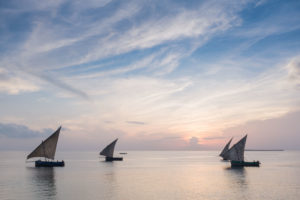
The challenges to tourism development in the Zanzibar archipelago reinforced (i) the need for more integrated approaches to destination planning, where needs for physical infrastructure can be assessed within the context of coherent zones selected as priorities for tourism development; and (ii) the need for public institutions across several sectors to work more closely, effectively, and efficiently with private investors, communities and other stakeholders to achieve a common tourism strategy.
The Tourism Strategic Plan, and an accompanying Action Plan, is part of the Government’s commitment to ensure the sustainable development, management and marketing of tourism for Zanzibar over the next ten years. CDC worked in a facilitation role, setting up thematic working groups, chairing workshops and assembling the draft plan from shortlisted strategies according to priorities identified by stakeholders.
Research, analysis, strategy development and technical backstopping — Market Development Programme for Northern Ghana (MADE). UK DFID
 CDC worked with Nathan Associates and the UK DFID on the identification, profiling and screening of potential seed company investors (rice and groundnut), and a parallel Market Systems Analysis and intervention design for the vegetable seeds market, focusing upon the incentives for greater investment by seed producers and distributors in partnership with the MADE programme.
CDC worked with Nathan Associates and the UK DFID on the identification, profiling and screening of potential seed company investors (rice and groundnut), and a parallel Market Systems Analysis and intervention design for the vegetable seeds market, focusing upon the incentives for greater investment by seed producers and distributors in partnership with the MADE programme.
By partnering with vegetable buyers, seed importers and their agro-input dealer network, the programme worked to a) improve penetration of input distribution networks into more remote vegetable production areas, with local agents filling gaps in farmers’ skills and knowledge in good growing practices, and b) generate increased demand for high quality seed by facilitating more stable and reliable marketing systems for vegetable end products.
Research, stakeholder consultation and strategy development — Seychelles: Strengthening Value Chain Links to the Tourism Industry. The World Bank
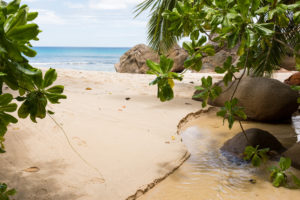
We were the technical lead for implementation of the World Bank Seychelles Value Chain Linkages to Tourism project, reporting to the Minister of Finance, Trade and the Blue Economy with a quantitative diagnosis and policy recommendations for cost reduction, value addition and increased local content in tourism products.
The work was the main tourism input for the Bank’s wider Seychelles Systemic Country Diagnostic (SDC), providing a blueprint for the organisation’s short- to medium-term engagement with the country, and also informed fisheries, agricultural and policy components.
Moderation and facilitation services — Global Conference on the Sustainable Blue Economy, Nairobi. Government of Kenya and EU
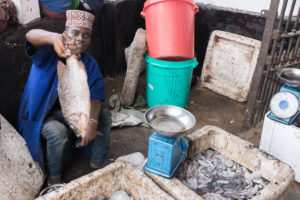 CDC provided moderation services for this gathering of world leaders, researchers, businesses and practitioners. We chaired two signature thematic sessions: a) Ending Hunger, Securing Food Supplies and Promoting Good Health and Sustainable Fisheries, and b) People, Culture, Communities and Societies: The Inclusive Blue Economy.
CDC provided moderation services for this gathering of world leaders, researchers, businesses and practitioners. We chaired two signature thematic sessions: a) Ending Hunger, Securing Food Supplies and Promoting Good Health and Sustainable Fisheries, and b) People, Culture, Communities and Societies: The Inclusive Blue Economy.
In addition to facilitating the presentations and chairing panel discussions, we synthesised the key messages and way forward for each session, which formed part of the executive summary of the conference final report.
Sustainable Blue Economy website
Technical backstopping, programme strategy and design — Samarth Nepal Market Development Programme. UK DFID.
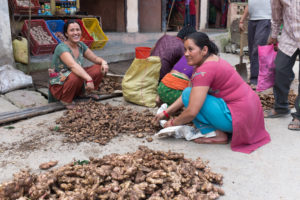 We supplied Adam Smith International with long-term backstopping support for their design and implementation of the UK Government’s Samarth M4P programme. Working with Nepali sector specialists in ginger production, mechanisation, vegetable supply and crop protection, we facilitated market systems analysis, strategy development, intervention design and partnership development.
We supplied Adam Smith International with long-term backstopping support for their design and implementation of the UK Government’s Samarth M4P programme. Working with Nepali sector specialists in ginger production, mechanisation, vegetable supply and crop protection, we facilitated market systems analysis, strategy development, intervention design and partnership development.
In addition, we supported the emergency response and programme redesign processes in the aftermath of the April 2015 ‘Gorkha’ earthquake as part of the UK Government’s disaster recovery commitment.
Samarth’s intervention portfolio appears here. This website also hosts many resources based upon the learning gathered from this exemplary market development programme.
Research, analysis, strategy and design — Malawi Oilseeds Sector Transformation (MOST) market development programme. UK DFID
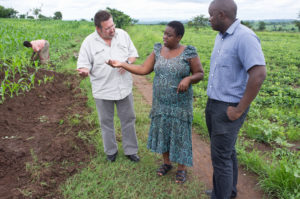 The MOST M4P programme was a standout success, generating an average 30% increase in smallholder yields, with 160,000+ households benefitting from cumulative income uplift totalling £15.77 million from an investment of £7.4 million.
The MOST M4P programme was a standout success, generating an average 30% increase in smallholder yields, with 160,000+ households benefitting from cumulative income uplift totalling £15.77 million from an investment of £7.4 million.
CDC supported business planning in years one, two and three, backstopping market systems analysis, development of programme logic and theories of change, and intervention design.
